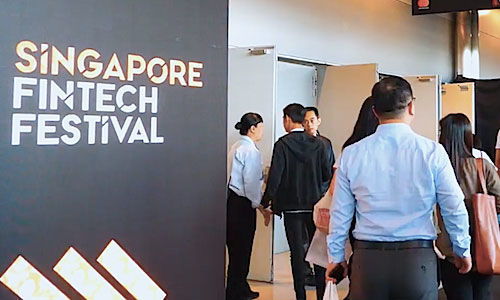Think There Are Too Many Payment Fintechs Now?
In many markets globally, consumers are faced with a large and bewildering array of potential fintech payment options — from PayLah! and PayNow in Singapore to larger global players such as Apple Pay and Google Pay. Industry players think their ranks can only grow from here. Why?
Global consultancy PwC estimated in a report this year that cumulative global investment in fintech would exceed $150 billion. Separately, CB Insights said second-quarter fintech funding topped $8.3 billion, getting a fillip from 25 players getting more than $100 million in funding rounds.
Funding to venture capital-backed fintech companies increased 25 percent on-year in the second quarter of this year, CB Insights said. India had 23 deals to venture capital-backed fintech companies, topping China by eight, CB Insights said.
Partnering With Many New Players
«Payments are dynamic and fast-paced. That means a lot of competitors and a lot of winners because there are a lot of use cases,» Andrea Donkor, global head of regulatory relations at PayPay, said Tuesday at the Singapore Fintech Festival 2019.
Speaking on a panel titled, «Payments are dead; long live payments,» Donkor said PayPal was partnering with many of the new players, rather than trying to compete with them, noting that sometimes PayPal technology is connecting local payment methods, even when the customer wasn’t aware of it.
Old School Payment Companies
Arik Shtilman, co-founder and CEO of Rapyd, a payment aggregator, said fragmentation in the payments sector would continue because local players in different countries can use aggregators, such as his company, to go global, with global clients. «At the beginning of the decade, payments were mainly about ‘I want to collect a payment from a consumer,’ and this is what most of the old school payment companies used to do,» he said, pointing out that now fintech was much bigger than just payment collection, because companies now also deal with other functions including disbursing payments and handling funds in custody. That means more players in the market.
Rapyd was launching a «Singapore stack» to connect the local payment options, including PayLah!, PayNow, PayAnyone and NETS, he said. Connecting the payment options means customers can seamlessly make global payments using a local fintech via the aggregators’ platforms.
Huge White Space
Jason Thompson, CEO of Indonesian payments player OVO, pointed to one big reason fintechs can keep multiplying: Cash. «In Indonesia, we’ve got penetration of about 2.3 percent; we’ve got 97.7 percent of the market is still cash. Cash is dominant throughout the world,» he said. «We’ve still got this huge white space to develop into.»
Thompson also noted another reason the industry wasn’t likely to consolidate into a «superapp,» and would continue to need a multitude of payments players: Every location is different. «I genuinely believe trying to enter Indonesia as a global organization without localization — after three years of trying to do it — I think it’s nearly impossible,» he said.
Consumerism is a Meritocracy
«When it comes down to the country entry and domestic services, the barriers to entry are huge. And they’re not actually regulation or governmental barriers to entry, it’s consumerism. Consumerism is a meritocracy all over the world and so I see [it being] very difficult to enter the market because of localization,» Thompson added.
- finews.asia is an official media partner of the Singapore Fintech Festival 2019. This article is published in collaboration with «Shenton Wire».



























